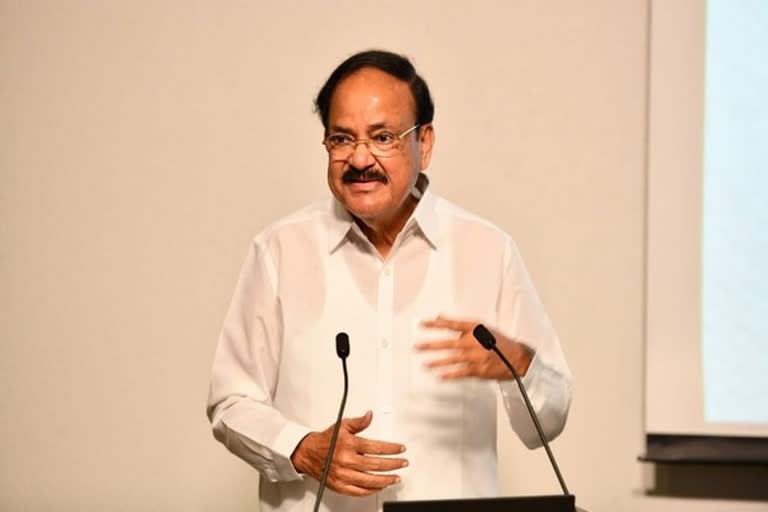Bhubaneswar:Vice President M Venkaiah Naidu on Sunday urged schools to make poetry a compulsory part of the curriculum, saying it can be a powerful tool for social transformation.
Emphasising that peace is a pre-requisite for progress, the vice president said that poetry can be a powerful medium to secure peace, happiness, brotherhood and harmony.
"I urge schools to make poetry reading and appreciation a compulsory part of the curriculum."
"I also ask universities to encourage literature, arts and humanities education. We need poets and writers and artists and singers as much as we need doctors, engineers and scientists," Naidu said while addressing the valedictory programme of the 39th World Congress of Poets here.
Vice President of India M Venkaiah Naidu He said poetry should promote peace, motivate people to cultivate universal brotherhood, social harmony and tolerance.
"Poetry can serve as a powerful catalyst that could hasten the process of social transformation," said Naidu.
Stressing that it is crucial to promote arts and culture to build an enlightened and healthy society, the vice president said, arts nurture creativity in society.
Without a creative voice, society will become stagnant, he said.
Naidu said that poets can be influencers and opinion makers as they have the potential to shape thoughts, feelings and attitudes.
"I am confident that they will use this tremendous power at their disposal, to build a better world," he said.
Describing poetry as one of the finest expressions of human emotions, Naidu said, "It conveys deep insights, a wide range of emotions and elevates the human experience to the highest levels of consciousness. It has a great impact on the inner chemistry of human emotions, on how we perceive, how we
respond and how we behave."
Noting that India's tryst with poetry was as old as its civilisation, the vice president said that great Indian epics such as the Ramayana and the Mahabharata were among the finest specimens of poetry ever written.
These epics are considered to be treasure houses of India's traditions and great encyclopaedias of ethics, religion, politics and morals, he said.
Emphasising that India has a long poetic tradition, Naidu said, luminaries like Kalidasa, Meera Bai, Tulsidas, Amir Khusrau, Kabir Das, Sarojini Naidu, Subramanya Bharathi,
Mirza Ghalib and Rabindranath Tagore mesmerized one and all with their poetic genius.
Biologists have argued that development of creativity was the most important step in human evolution, and that society cannot move forward without creative people, he said.
Noting that poetry is a powerful vehicle of intergenerational transmission of values and knowledge, he said, Indian tradition has relied on poetry for transmission of wisdom and even scientific knowledge.
Mentioning that poets have the unique potential to shape thoughts, feelings and attitudes, Naidu said, "promotion of literature is also an impactful method to preserve and promote languages, a cause that is very close to my heart."
The best way to preserve or promote any language is to use it extensively in everyday life. More and more people should be encouraged to write poetry, stories, novels and
dramas in their native languages, he said.
Stressing that poetry can promote peaceful co-existence which is important for development, Naidu said, India never believed in violence and aggression but pinned its faith on progressive living.
"Prosperity alone cannot give happiness ... there has to be inner peace and poetry can provide a channel to happiness," the vice president said.
Read:|Four-time Cong MLA Sawhney joins AAP
